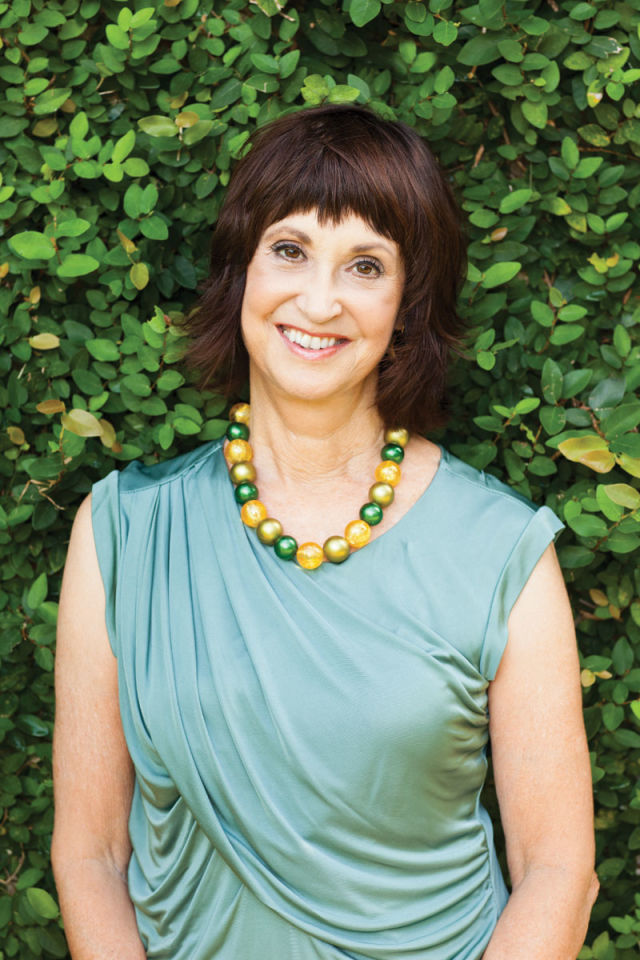Sarasota Ranks No. 3 on Gallup-Healthways Wellbeing Index

Did you smile and laugh a lot yesterday?
If you’re like 86 percent of local residents, you answered “yes.” That’s one of 55 questions that just earned our region—the North Port-Sarasota-Bradenton metropolitan area—the No. 3 spot on the Gallup-Healthways Wellbeing Index, a major annual survey that measures health and happiness in the nation’s 100 most populous communities.
We were outranked only by Naples, No. 1, and Salinas, Calif., No. 2. And according to Dan Witters, research director of the index, the three cities’ scores were so close that “you couldn’t even call the difference significantly significant.” Indeed, last year, with a lower overall score on the index—64.1, compared to this year’s 64.7—we scored No. 1.
Sarasota regularly gets recognized in national rankings, for everything from best beach to best place to retire. Those two accolades may be deserved, but many others seem dreamed up to light up social media. Last year, for example, real estate blog Movoto.com declared we’re the No. 1 Sexiest Small City in the United States—a rating based on such highly scientific measures as having lots of massage studios and hotels, along with steamy summers that encourage the wearing of bathing suits.
So when I saw the Wellbeing Index results, I had my doubts. But after talking to Witters, I’m a believer in its methodology and measures—and our ranking.
Over the course of a year, Gallup conducts 353,000 telephone interviews with adults in every state. They random-dial phone numbers, reaching about half of people on land lines and half on cell phones. (About 60 percent of American households are now cell-only, Witters told me.) And once people take the call, an impressive 99 percent of them complete the 55-question survey, which takes about 15 minutes.
What keeps them on the phone? It turns out there’s an art to hiring effective surveyors. Gallup rejects most applicants; the ones who make the cut must have a pleasant voice and what Witters calls “a high WOO factor.” (WOO stands for “winning others over,” and involves such skills as picking up on a stranger’s personality type and keeping a conversation going.) And because many people are turned off by regional accents, Gallup uses only surveyors from Nebraska. “Nebraskans tend not to have accents,” Witters explains.
The questions measure five aspects of well-being. These include physical (good health, behaviors like exercise and alcohol consumption), social (“how much love you have in your life,” says Witters), financial (how well you manage your finances and plan for economic security), purpose (whether what you’re doing at this point in your life seems right for you; learning and growing daily), and community (civic pride and safety).
Sarasotans scored exceptionally well. We were first in the country for financial security, ninth for healthy eating and third for daily happiness; and we reported the second-lowest stress levels. We also had low rates of obesity and tobacco use but a higher rate of moderate drinking—happily, since moderate drinkers report higher well-being than heavy drinkers or teetotalers. And when asked if they could imagine a better place to live, 61.3 percent of locals said no, the eighth-highest percentage in the nation.
I couldn’t help wondering—which came first, the chicken or the egg? Do happy people tend to move to Sarasota or does sunny Sarasota turn even cranky newcomers into blissful residents? Witters believes it’s both. Good weather, he says, has been shown to encourage exercise and healthy eating and reduce depression. But even more important is having the right civic culture. Some cities, like Boulder, Colo., he says, “have a very tangible culture of well-being,” with lots of people embracing healthy living, biking, ongoing education and social involvement. That kind of culture attracts newcomers with similar values. That’s certainly true in Sarasota.
There’s one other reason Witters thinks we’re so happy: our demographics. “Seniors have the highest rate of well-being of any age group,” says Witters. “That rate goes up after 55 and especially after 65, across the board.” And even though older people have more medical issues, they actually report better physical well-being, he says. They tend to smoke less and drink less as they age, and they enjoy the comforting stability of monthly Social Security checks and Medicare.
Sunshine, social life and seniors—the Sarasota recipe for happiness.



